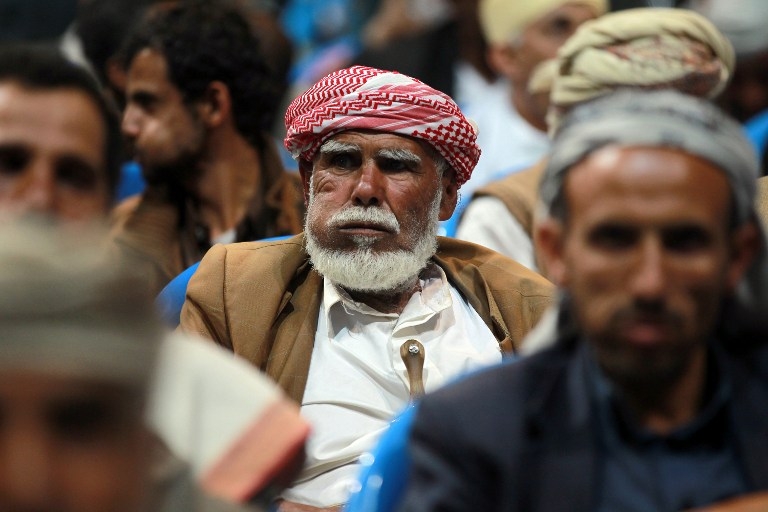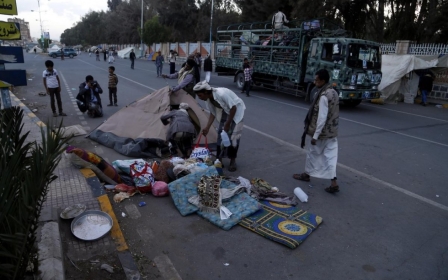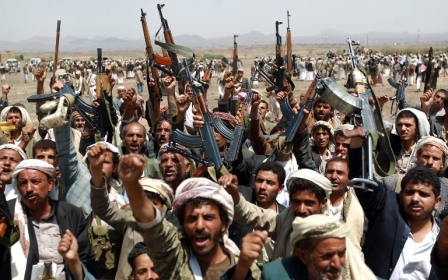Yemen rivals agree to form technocratic government

Yemen announced the formation of a new government of technocrats on Sunday in a bid to resolve a crisis between the country’s leaders and Houthi Shiite rebels who have captured several provinces including the capital Sana’a, state media said.
Representatives of the Houthi rebels, a powerful Islamist group based in northern Yemen, and their rivals including the Sunni Islamist Al-Islah party signed the deal in the presence of UN envoy Jamal Benomar at a ceremony in a Sanaa hotel.
"It is a compromise agreed to overcome the question of sharing out ministerial portfolios between the various groups" behind the political stalemate, signatory Abdel Aziz Jubari of the liberal Justice and Construction party told AFP.
Yemenis are hoping the deal will bring some respite to recent conflict that has seen armed militias clash in the capital, heightened sectarian tensions and the transitional government brought to the verge of collapse.
Others who believe the Houthis have no intention of negotiating through politics and see the government as weak and incompetent, say the deal is unlikely to resolve anything soon.
“There is no difference between this government and the last one, Yemen is still ruled by the same factions,” Abdullah Al-Faqih, a professor of politics at Sana’a University told the Yemen Post.
“The people don’t back Hadi as president anymore. He only continues his post because foreign countries still need him to.”
The chaos in the impoverished Arabian Peninsula country was compounded when the Houthis, who the government say are backed by Iran, seized Sanaa on September 21 and later expanded their sphere of influence into central and west Yemen.
On Friday, the Houthis increased pressure on Hadi by giving him 10 days to form a new government or face creation of a "national salvation council".
With the exception of the 13 October appointment of Bahah as premier, a 21 September deal with the rebels has remained a dead letter.
Under the UN-sponsored accord, the Houthis were to withdraw from Sanaa and disarm once a neutral prime minister is named.
The rebels say they are filling the void left by the security forces and standing up to Al-Qaeda in the Arabian Peninsula, viewed by Washington as the deadliest franchise of the global extremist network.
New MEE newsletter: Jerusalem Dispatch
Sign up to get the latest insights and analysis on Israel-Palestine, alongside Turkey Unpacked and other MEE newsletters
Middle East Eye delivers independent and unrivalled coverage and analysis of the Middle East, North Africa and beyond. To learn more about republishing this content and the associated fees, please fill out this form. More about MEE can be found here.




